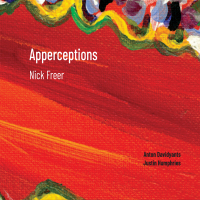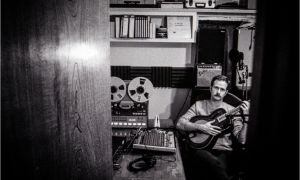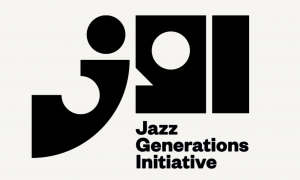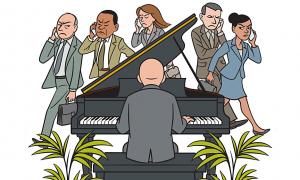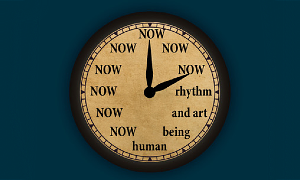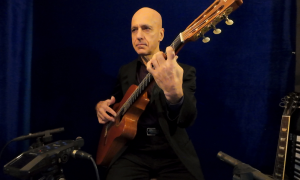Maybe we've been trained to think in winner-takes-all terms. But as the music industry starts to mature, everyone seems to be waiting for that big victor—that torch-carrying format or experience that trumps everything else; that company that out-and-out obliterates the competition.
We want a winner! But maybe it's not that simple. In radio, for example, the thought of Pandora, Sirius, and terrestrial radio coexisting seems difficult toimagine. After all, these are totally different experiences that seem to cannibalize one another. Yet here we are, in a stage where all three are making a serious impact. Terrestrial radio still has the power to blast an artist into the stratosphere; it still dominates. Yet satellite is beaming from the stratosphere to more than twenty million subscribers. And, Pandora is about to cross into the financial stratosphere with an ambitious IPO and category-killing claims.
The same may be true in the ownership-versus-access debate. Instead of entrants like Spotify and Grooveshark taking over, we're living in a world of multiple models. I'd say that some fans own while others stream, but the reality is blurrier. Most people I bump into are doing everything: owning, streaming on-demand from places like Grooveshark, thumbing tracks on Pandora, and more. Just because you love Grooveshark doesn't mean you're going to delete thousands of MP3s, trash your CD collection, stop collecting vinyl, or leave the iPod at home.
But the overlapping gets even more complicated, and winners are emerging across lots of different niches. Streaming music videos, for example, now represent a monstrous category, one now surpassing file-sharing bandwidth. Yet a recent study by Cisco shows that file-sharing across protocols like BitTorrent or more traditional P2P apps is still increasing, albeit at a slower rate than years past. It's just that online media consumption is expanding at an enormous (and arguably, scary) rate.
Of course, some of this will shake out, there will be roadkill categories just like before. But the overall appetite for music keeps expanding, which explains a lot of what we're seeing. Because everyone enters the stage with a slightly different set of preferences, and that creates a complicated, overlapping map of winners that can be difficult to predict.
In some ways, it's sort of like transportation, because everybody needs to get around! You could say there's a huge 'appetite for mobility.' Accordingly, if you need to get from New York to Boston, for example, you've got lots of options. You can drive, fly, take a bus, take a train, rideshare on Craiglist, take a helicopter, whatever. The options depend on preference, budget, lifestyle, time constraints, exact departure and arrival points, etc. And just like music, there are lots of interested participants with lots of different preferences.
But wait. If the space can accommodate so many winners, why are so many losing? And at such a drastic level? The reason is that different formats and categories are all treacherously competitive, often cut-throat, and struggling to monetize. It's the reason why Google, Amazon, and Apple are killing themselves to establish cloud dominance, why Pandora is constantly getting nipped by the likes of iheartradio, CBS Interactive, or Slacker. Most startups and companies will ultimately lose, just like before, it's just that the winner's circle may ultimately be bigger and more complex than we imagined.
We want a winner! But maybe it's not that simple. In radio, for example, the thought of Pandora, Sirius, and terrestrial radio coexisting seems difficult toimagine. After all, these are totally different experiences that seem to cannibalize one another. Yet here we are, in a stage where all three are making a serious impact. Terrestrial radio still has the power to blast an artist into the stratosphere; it still dominates. Yet satellite is beaming from the stratosphere to more than twenty million subscribers. And, Pandora is about to cross into the financial stratosphere with an ambitious IPO and category-killing claims.
The same may be true in the ownership-versus-access debate. Instead of entrants like Spotify and Grooveshark taking over, we're living in a world of multiple models. I'd say that some fans own while others stream, but the reality is blurrier. Most people I bump into are doing everything: owning, streaming on-demand from places like Grooveshark, thumbing tracks on Pandora, and more. Just because you love Grooveshark doesn't mean you're going to delete thousands of MP3s, trash your CD collection, stop collecting vinyl, or leave the iPod at home.
But the overlapping gets even more complicated, and winners are emerging across lots of different niches. Streaming music videos, for example, now represent a monstrous category, one now surpassing file-sharing bandwidth. Yet a recent study by Cisco shows that file-sharing across protocols like BitTorrent or more traditional P2P apps is still increasing, albeit at a slower rate than years past. It's just that online media consumption is expanding at an enormous (and arguably, scary) rate.
Of course, some of this will shake out, there will be roadkill categories just like before. But the overall appetite for music keeps expanding, which explains a lot of what we're seeing. Because everyone enters the stage with a slightly different set of preferences, and that creates a complicated, overlapping map of winners that can be difficult to predict.
In some ways, it's sort of like transportation, because everybody needs to get around! You could say there's a huge 'appetite for mobility.' Accordingly, if you need to get from New York to Boston, for example, you've got lots of options. You can drive, fly, take a bus, take a train, rideshare on Craiglist, take a helicopter, whatever. The options depend on preference, budget, lifestyle, time constraints, exact departure and arrival points, etc. And just like music, there are lots of interested participants with lots of different preferences.
But wait. If the space can accommodate so many winners, why are so many losing? And at such a drastic level? The reason is that different formats and categories are all treacherously competitive, often cut-throat, and struggling to monetize. It's the reason why Google, Amazon, and Apple are killing themselves to establish cloud dominance, why Pandora is constantly getting nipped by the likes of iheartradio, CBS Interactive, or Slacker. Most startups and companies will ultimately lose, just like before, it's just that the winner's circle may ultimately be bigger and more complex than we imagined.





